Despite 20 years and counting, in and around digital — including seven or so working inside technology startups — I never learned to code. Sure, there was that one three-day-course my parents enrolled me in during the summer between fifth and sixth grades, but this was way back in the 70s (long before my career began) and the process of programming a simple trivia game by typing arcane language into a machine that didn’t even have a monitor (you had to print the code on paper to debug it) hardly inspired me to pursue a coding career. And sure, I know enough basic html to tweak a setting here or there on this blog. But I wouldn’t say I’ve learned to code.
Until yesterday. And frankly, it was a long-time coming.
I’m not sure what took me so long. Whenever I’ve wanted to truly understand the effects of a given technology on business, I’ve simply done it. It’s why I signed up for my first online service. Worked at streaming media startups. Launched this blog. Rushed to try MySpace, Facebook, Second Life (egads), Twitter, Instagram, Vine, and countless platforms that have long since come and gone. And when clients want to understand how their consumers use new technologies, I’m always inclined to teach them how to use them themselves, whether that means sitting beside a senior executive as he types his first tweet or turning hundreds of members of a global marketing team into “consumer” content creators over the course of a week.
But coding? I’ve left it to the coders.
So finally, yesterday, I spent a day with the team from decoded and a small group of mid-career professionals (mostly ad agency types), going through a Code in a Day program — a 10-hour curriculum that promises to take attendees with no technical skills to coding an app in a single day. Precisely as promised, after a whirlwind tour through the fundamentals of html, CSS and Javascript; some poking around through public libraries of open source code; and line-level (literally line-level) thinking about how geolocation works; and a lesson in how simple it is to make a design responsive to work across multiple devices, I was the proud maker of a basic app that lets users check in at a given location, but only after validating that the user is — in fact — at that actual location. My little app — a minimally viable product if ever there was one — will hardly take on Foursquare’s Swarm, but all-in-all I’d say it’s not half-bad for a day’s worth of work.
Did I learn to code? Well, sorta. I’d say I learned about code. How it works, what it does, why it matters and the part it plays in digital business strategy. I learned what it’s like to actually do something digital at its most basic level.
I’d also say that when it comes to code, this is exactly what a digital business leader needs to know.
While it’s not inconceivable that some folks who go through a program like Code in a Day get bitten by the bug, and go on to complete multi-month courses that will power them through to a new career in software development, the more likely outcome is that these already accomplished professionals — these strategists, account directors, entrepreneurs and accountants — will simply go back to their work-a-day realities, doing what they’ve trained a lifetime to do.
But as they do, they’ll do so with a better understanding of the technologies that underly the applications they rely on to deliver solutions, a newfound respect for the work the technical team toils away at late into the night, and a far greater appreciation for what it takes — at the absolute, most fundamental level — to translate even the biggest-picture digital vision into a fully-formed reality.
These things rarely come from reading the trades, pontificating at the podium, or running even the world’s most sophisticated models. They come from hands-on experience. And it is exactly this kind of hands-on experience that has the power to spark the cultural shifts that transform organizations and the individuals who lead them, as it teaches not simply a new skill set but also the importance of adopting a new mindset. You’ll gain a new vocabulary by which to describe your business, you’ll gain new tools for collaboration between the rapidly converging front-lines and back-office of your organization, and you’ll gain keener insights into digital strategy and execution.
In other words, doing digital bridges the gap between merely talking digital and actually being digital. And in a world when being digital can separate winners from the losers, doing digital can make the difference between leading your organization’s transformation and getting left behind as your organization transforms without you.
And this is what you’ll really learn when you learn about code.





